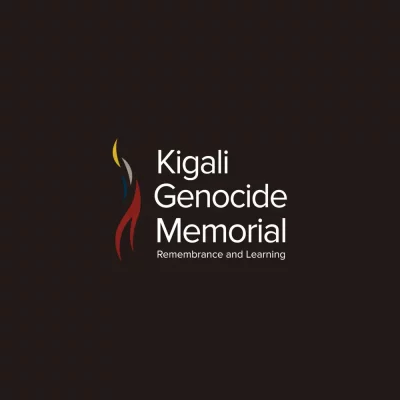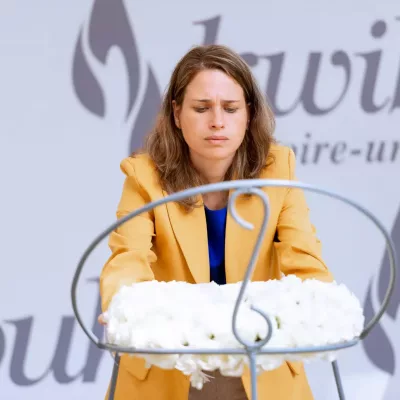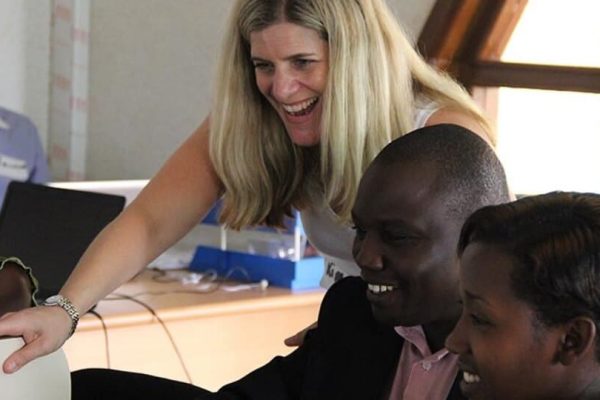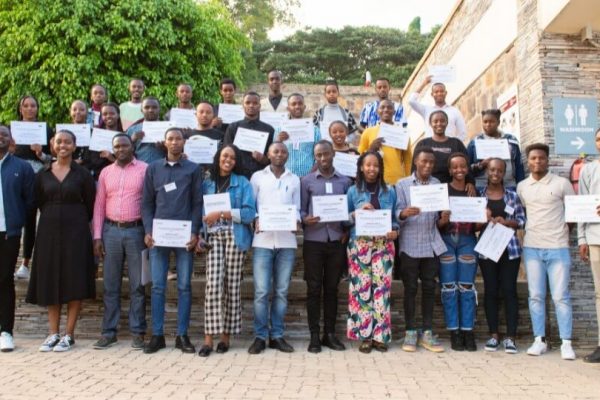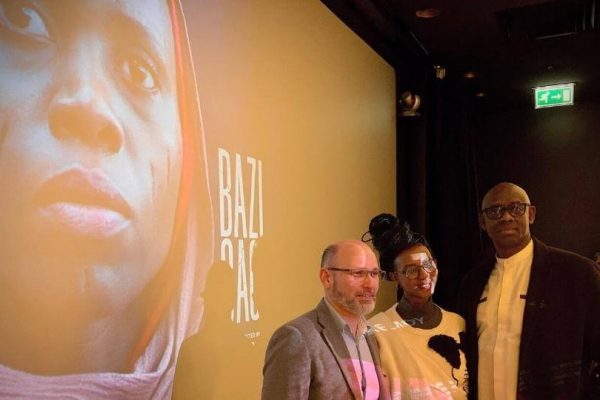A group of 40 members from the AERG Rudasumbwa Family have visited the Kigali Genocide Memorial to remember their family members and friends killed in the Genocide against the Tutsi and to learn more about fighting genocide ideology.
AERG (the Association of Student Survivors of the Genocide) has many different families which include parents, children, uncles and aunts. Theogene Habanabashaka is one of the parents of Rudasumbwa family. He said that the reason why they always come to visit the memorial is because it is the final resting of many of their parents, neighbours as well as friends who lost their lives in the Genocide.
“For some of us, our parents, family members and friends are buried here. It is our responsibility to come and remember. This strengthens us to fight genocide ideology and helps us to learn more from our history.”
Ignace Ngirabakunzi, a fourth year student in Journalism and Communication, is among those who survived and who belongs to Rudasumbwa family. Speaking during his visit to the memorial, he directed his message to the youth taking part in remembrance activities and visiting the memorial as most of them were born after the Genocide.
“Visiting is good as it is also a form of learning. When people visit the memorial they understand that we cannot allow this to happen again. My message goes directly to young people, as youth participated a lot in the Genocide in 1994. You should visit memorials to know the history, not only the memorial in Kigali, but also other memorial sites like Murambi, Ntarama and Bisesero so you are aware of what happened.”
Alexis Musabirema, a journalist at Umuseke, also belongs to the family. He said that we must ensure historical clarity and fight genocide denial and the distortion of the facts of the Genocide.
“As young people who are the strength of this nation, we have to take these three things into consideration: knowing our history, self–reliance and fighting and never participating in destructing acts. These rules will help us to build our nation.”
Yvonne Iradukunga, who is also a member of Rudasumbwa Family, said that though she was born after the Genocide, she is always curious to know what happened in 1994 and that coming to the memorial is one of the greatest lessons one can take.
“I know that some people fear to visit the memorial because they worry about trauma. But coming here can also make somebody relieved. We do not have to fear emotions as it one of the ways to express our feelings. Young people should pay attention to social media as it one of the ways that deniers use. Liking and commenting on everything blindly could lead us to trouble in ways we do not yet know. Therefore, we need to use our education to fight against denial and genocide ideology.”

